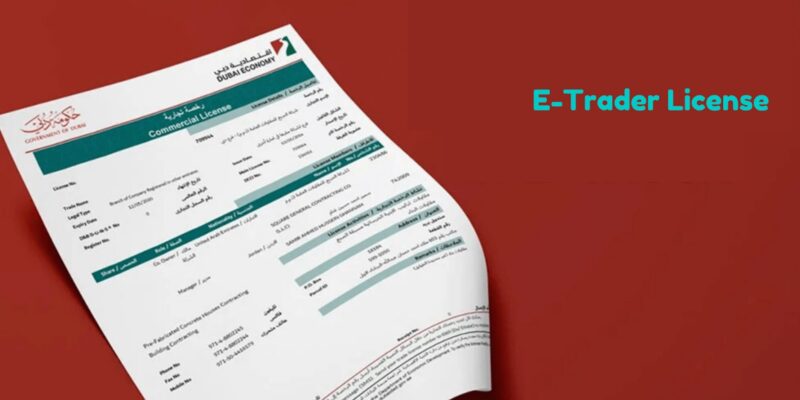In the United Arab Emirates (UAE), the surge in online business activities has led to the establishment of specific licenses to regulate and facilitate e-commerce operations. Two primary licenses cater to online entrepreneurs: the e-trader license and the e-commerce license. Understanding the distinctions between these licenses is crucial for selecting the one that aligns best with your business objectives.
E-Trader License
The e-trader License is designed for individuals and single-owner businesses aiming to sell goods and services exclusively through social media platforms. Issued by the Department of Economic Development (DED), this license is particularly suitable for small, home-based entrepreneurs.
Key Features:
- Eligibility: Primarily available to UAE and GCC nationals residing in Dubai.
- Business Activities: Allows the sale of products and services via social media channels such as Instagram, Facebook, and Twitter.
- Physical Presence: Does not permit the establishment of a physical store or office space; operations are confined to residential premises.
- Employee Hiring: Restricts the hiring of staff; the business is managed solely by the license holder.
- Geographical Scope: Limits sales activities to within the Emirate of Dubai.
This license is ideal for solo entrepreneurs, freelancers, and small-scale traders who wish to operate without significant overhead costs.
E-Commerce License
The E-Commerce License caters to businesses intending to conduct online sales through dedicated websites, mobile applications, and various e-commerce platforms. It offers a broader scope compared to the E-Trader License, accommodating larger-scale operations.
Key Features:
- Eligibility: Open to both UAE nationals and foreign investors.
- Business Activities: Enables the sale of products and services through official e-commerce websites, mobile apps, and online marketplaces like Amazon and Noon.
- Physical Presence: Allows the establishment of physical offices or stores, providing a tangible presence in the market.
- Employee Hiring: Permits the recruitment of staff to manage various business operations.
- Geographical Scope: Grants the flexibility to operate across all Emirates and engage in international trade.
This license is suitable for entrepreneurs aiming to scale their businesses, manage inventories, and reach a broader customer base both locally and globally.
Comparative Overview
| Aspect | E-Trader License | E-Commerce License |
|---|---|---|
| Eligibility | UAE and GCC nationals residing in Dubai | Open to UAE nationals and foreign investors |
| Business Platform | Social media channels | Dedicated websites, mobile apps, and online marketplaces |
| Physical Presence | No physical store or office permitted; home-based operations | Allows establishment of physical offices or stores |
| Employee Hiring | Not permitted; sole proprietorship | Permitted; can hire staff |
| Geographical Scope | Limited to Dubai | Operates across all Emirates and internationally |
Choosing between an E-Trader License and an E-Commerce License depends on your business model, target audience, and growth aspirations. For small-scale, home-based businesses focusing on local markets, the E-Trader License offers a cost-effective and straightforward solution. Conversely, for businesses aiming for extensive operations with the potential for international reach, the E-Commerce License provides the necessary flexibility and scalability.
It’s essential to assess your business goals and resources carefully to determine the most suitable licensing option, ensuring compliance with UAE regulations while positioning your enterprise for success in the dynamic e-commerce landscape.














Comments